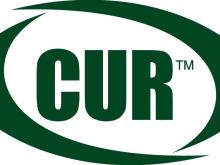Participation in research is a vital part of the undergraduate experience at the University of Oregon. Students from across the academic disciplines can be found investigating, discovering, creating, and innovating. Research experiences allow students to explore and clarify their academic and professional goals while developing critical thinking and important workforce skills.
The Undergraduate Research Opportunity Program (UROP) encourages and supports undergraduate research and creative scholarship in all the academic disciplines included in the UO’s eight undergraduate schools and colleges.
UROP promotes inclusive excellence by working to ensure equitable access to opportunities, benefits, and resources to all students, faculty, and staff.
UROP Partners
UROP Faculty Advisory Committee
| name | title | department | college/school |
|---|---|---|---|
| Lauren Hallett | Associate Professor | Biology | College of Arts and Sciences |
| Leif Karlson | Associate Professor | Earth Sciences | College of Arts and Sciences |
| Keat Ghee Ong | Professor | Knight Campus | Knight Campus for Accelerating Scientific Impact |
| Donnalyn Pompper | Professor | Public Relations | School of Journalism and Communication |
| Arafaat Valiani | Associate Professor | History | College of Arts and Sciences |
|
José Cortez |
Assistant Professor | English | College of Arts and Sciences |
UROP Leadership
Karl Reasoner, Senior Program Manager, kreasone@uoregon.edu, 541-346-8520, PLC 017
Values
hip begins with inquiry. UROP believes that this simple action should be fostered in all undergraduates, and that inquiry should be a principle factor in the design of undergraduate teaching and research activities.
Discovery: Conducting research and creative scholarship involves the collection and transmission of knowledge in its processes, however, UROP believes that the ultimate goal should be discovery – of new knowledge, of new practices, and of new expressions of creativity.
Critical Thinking: The ability to think critically is perhaps the most important skill a student can gain from an undergraduate education. Developing this skill is crucial for succeeding in a knowledge economy. Being able to quickly analyze information and form objective and critical perspectives will allow UO graduates to make effective decisions in their personal and professional lives. Critical thinking is but one of many skills and abilities that students experience positive gains in through conducting undergraduate research and creative scholarship.
Disciplinary Definitions of Research and Creative Scholarship: UROP purposefully does not adopt a definition of undergraduate research and creative scholarship. We do this with the utmost respect to how each discipline defines research, their methods, and their processes. This approach also aligns with our value of inclusiveness. UROP does, however, affirm some key characteristics and outcomes of undergraduate research and creative scholarship experiences.
Inclusiveness: UROP affirms the University’s commitment to equity, to diversity, and to the development of faculty, students, administration, and staff who will participate effectively in a global society. To this end, the resources and services of UROP are available to students and faculty from every corner of campus. We encourage those that are interested in undergraduate research and creative scholarship to contact us to see how we can help each other, and we are eager to work with the UO community to advance scholarship on campus.
Council on Undergraduate Research
The University of Oregon is an institutional member of the Council on Undergraduate Research.
The Council on Undergraduate Research (CUR), founded in 1978, is a national organization of individual and institutional members representing over 900 colleges and universities. CUR believes that faculty members enhance their teaching and contribution to society by remaining active in research and by involving undergraduates in research, and students succeed in their studies and professional advancement through participation in undergraduate research.

